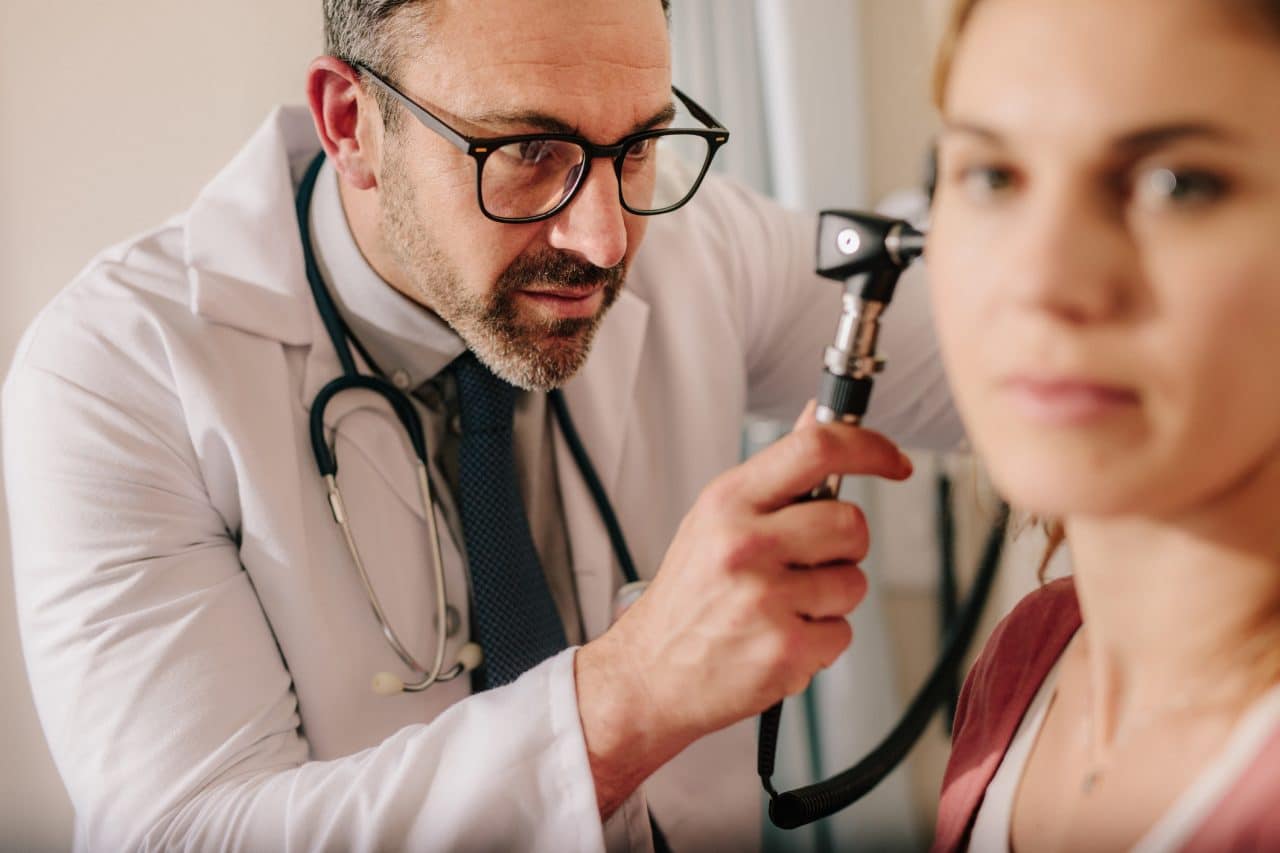Blood coming out of your ear can be rather alarming, especially if you don’t know what is causing it. There are a number of conditions that can result in your ear bleeding. Understanding the causes can help you seek treatment quickly should you ever find yourself in this position.
Perforated Eardrum

Your outer and middle ear are separated by your tympanic membrane, more commonly referred to as the eardrum. This thin, skin-like tissue vibrates in response to sound waves entering the ear from your environment. This vibration moves through the small bones of the middle ear to the delicate hair cells of the inner ear, which translate the vibration into an electrical impulse. The electrical impulse is then sent via the auditory nerve to the brain to be interpreted as sound.
The eardrum can tear as the result of a middle ear infection, an injury to the side of the head, a sudden change in pressure or exposure to extremely loud noises such as a gunshot or explosion. The most common cause of a ruptured eardrum is sticking an object, such as a cotton swab or bobby pin, too far down the ear canal.
Bleeding may occur in addition to sharp pain, hearing loss, dizziness and tinnitus.
Small tears in the eardrum are usually able to heal on their own with antibiotics to prevent an infection. If the perforated eardrum is not healed after two months, surgery may be needed to patch the eardrum.
You can take a few simple actions to help prevent a perforated eardrum including:
- Wearing hearing protection when at Quickshot Shooting Range.
- Resisting the urge to stick anything into your ear.
- Letting your doctor know if you are experiencing symptoms of an ear infection.
Additional Causes of Blood in the Ear
A perforated eardrum is the most likely reason why there may be blood coming out of your ear. Additional causes include:
- Head trauma.
- A cut.
- An ear infection.
- Cancer.
If your ear is bleeding it will usually stop on its own. If your ear continues to bleed, seek medical attention immediately.
To learn more about a perforated eardrum or to schedule an appointment with an ear expert, contact Georgia Hearing Institute today.
